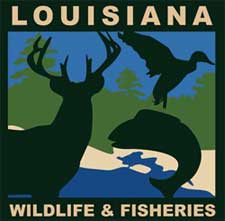Hunters Preparing For Upcoming Season Advised of Problems Associated with Use of Tainted Corn for Feed

Louisiana –-(Ammoland.com)- The Louisiana Department of Wildlife and Fisheries (LDWF) is advising anyone using corn to feed deer and turkeys that care should be taken to avoid tainted corn, especially corn with high aflatoxin levels.
The best way to avoid tainted corn is to purchase packaged corn that has been tested and labeled aflatoxin free.
Aflatoxin is a toxin produced by a fungus that affects certain grain products, especially yellow corn, under conditions of high heat, drought, and high relative humidity. Consumption of aflatoxin by animals may cause liver disease, unthriftiness, abortion, poor reproduction, poor immune function and death. The severity of disease is related to the dose of aflatoxin consumed and the time span over which it is consumed.
According to the LA Department of Agriculture, there are scattered areas of aflatoxin tainted corn in Louisiana this year.
Grains contaminated with aflatoxin in excess of levels allowed in animal feeds should not be fed to wildlife. Due to the sensitivity of wild turkeys to aflatoxin, 20 ppb should be considered the maximum level for corn distributed in areas where turkeys are present.
Acute exposure to aflatoxin occurs when an animal ingests a large dose at high concentrations over a short period of time resulting in death. Birds such as wild turkeys, ducks and geese are more susceptible than mammals. However, chronic exposure is much more likely to occur with wildlife eating from a corn feeder.
The safest source of deer corn is retail stores selling corn certified as aflatoxin free. Hunters seeking a cheap source of corn directly from the field may get a short-term bargain but a long-term loss of recreational opportunity if wildlife is exposed to corn contaminated with high levels of aflatoxin.
Hunters are reminded that conditions causing high aflatoxin levels in cornfields occur only rarely under a narrow set of conditions. The most frequent source of aflatoxin is good corn that has been mishandled. Clean corn that is transported or stored at high temperatures and high humidity can produce aflatoxin within 24 hours and biologically significant amounts in a few days. Year in and year out, hunters should be vigilant about the proper transportation, storage, and feeding of corn to avoid the detrimental impacts of aflatoxicosis on all forms of wildlife.
LDWF RECOMMENDATIONS
1. Just say no to corn feeding. This is the only way to be absolutely certain that aflatoxin and other mortality factors (predators) associated with supplemental feeding will be eliminated.
2. Maintain a healthy well-balanced deer herdby proper application of either-sex harvest. Research on livestock indicates that stress-free well-fed animals are not as susceptible to aflatoxin related disorders as under-nourished animals with additional stress factors (parasites, etc.).
3. Use only certified cornthat is below 20-ppb aflatoxin.
4. Do not expose corn to rainfallduring transportation and store it in water, insect and rodent resistant containers placed in a cool location. Wildlife resources should be treated like prize livestock and fed only the best quality corn.
5. Use feeders that protect cornfrom the weather and dispense small quantities. Frequent filling of feeders with small hoppers will keep corn fresh. Do not use wet or moldy corn.
6. Frequently move feedersto reduce the risk of wildlife exposure to secondary diseases and parasites that can contaminate the soil in an area of frequent use.
7. Terminate your feeding program by February 15th each year.
8. Thoroughly clean storage containers and feeders annually. Remove dirt, old corn and debris and wash with bleach and water at the end of the season.
For more information, contact Dr. Jim LaCour at 225-765-0823 or jlacour@wlf.la.gov .
The Department of Wildlife and Fisheries is charged with managing and protecting Louisiana’s abundant natural resources. For more information, visit us at www.wlf.louisiana.govon Facebook at www.facebook.com/ldwffbor follow us on Twitter @LDWF.
